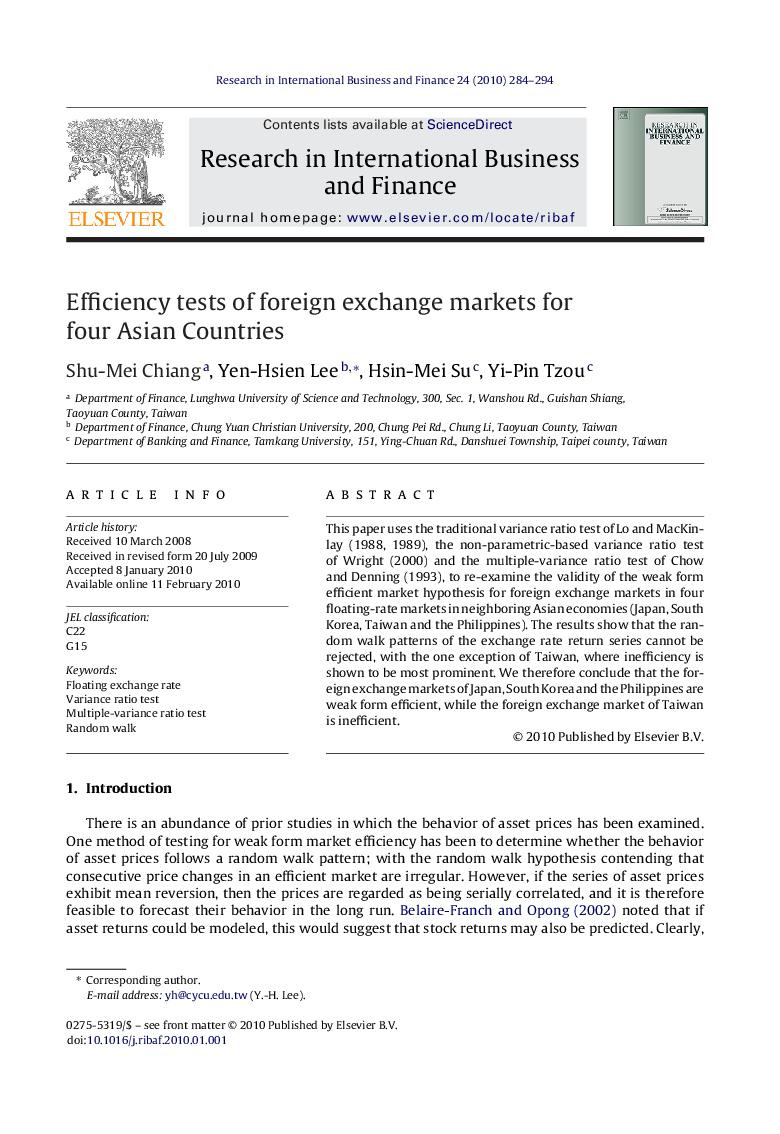| Article ID | Journal | Published Year | Pages | File Type |
|---|---|---|---|---|
| 1002315 | Research in International Business and Finance | 2010 | 11 Pages |
This paper uses the traditional variance ratio test of Lo and MacKinlay (1988, 1989), the non-parametric-based variance ratio test of Wright (2000) and the multiple-variance ratio test of Chow and Denning (1993), to re-examine the validity of the weak form efficient market hypothesis for foreign exchange markets in four floating-rate markets in neighboring Asian economies (Japan, South Korea, Taiwan and the Philippines). The results show that the random walk patterns of the exchange rate return series cannot be rejected, with the one exception of Taiwan, where inefficiency is shown to be most prominent. We therefore conclude that the foreign exchange markets of Japan, South Korea and the Philippines are weak form efficient, while the foreign exchange market of Taiwan is inefficient.
